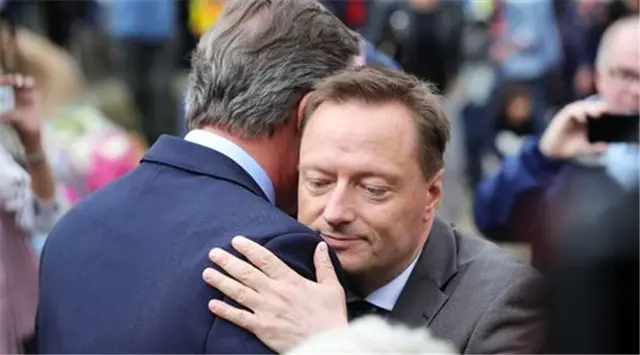The first parliamentary elections in Britain since the June 23 EU referendum take place this week to find MPs to replace former prime minister David Cameron and slain Labour politician Jo Cox.
Voters in both constituencies, Witney as well as Batley and Spen, will vote on Thursday, with the results announced in the early hours of Friday morning.
Even ahead of the voting, despite the upheaval caused by the referendum and Brexit, no shocks are expected.
Cameron quit as prime minister within hours of the announcement that Britain had voted to part company with Brussels. Later he decided to leave politics altogether, creating a by-election in Witney, in the county of Oxfordshire, to replace him.
Last year Witney, with 80,000 voters, re-elected Cameron as their Conservative Member of Parliament, leaving the other 40 percent of the votes divided between Labour, UKIP, the Liberal Democrats and other candidates.
It is almost certain that this coming Thursday barrister Robert Courts, aged 37, who is deputy leader of West Oxfordshire District Council, will romp home in what is considered a safe seat for the ruling Conservatives.
In Northern England, the big political parties, the Conservatives, Liberal Democrats, UKIP and the Green Party, all decided not to contest the seat vacated by the brutal murder of Labour MP Cox.
They took the view that it would be disrespectful to fight for a seat in Parliament made vacant under such tragic circumstances as the brutal murder of a British member of parliament.
Still, the same rule did not apply to others, and on Thursday a number of minority party and independent candidates are standing in Cox's Batley and Spen seat in Yorkshire, Labour's candidate, former television soap opera star Tracy Brabin, is virtually guaranteed success, leaving her nine challengers following behind.
The two by-elections, called for different reasons, paint a picture of the process that paves the way to the road Westminster, considered as the "mother of all parliaments".
Under British electoral law, any British resident is entitled to stand for parliament. They need support from just 10 voters in the constituency they are aiming to represent, and they have to pay a modest deposit of 500 pounds (610 U.S. dollars), which is repaid if a candidate receives five percent or more of the votes cast in the election.
Although the vast majority of MPs represent the major political parties, people bidding to walk the corridors of power can stand under any banner, or none.
In Witney, Courts will face competition from 13 candidates, most of them almost certain to lose their 500 pounds deposits.
Candidates such as Lord Toby Jug (Eccentric Party), Mad Hatter (Monster Raving Loony Party) and David Bishop (Bus-Pass Elvis Party), and the One Love Party candidate Emilia Arno, adds color, fun and spectacle to the often starchy world of British politics.
In Batley candidate Ankit Love is representing the One Love Party, one of the 10 candidates standing on Thursday. Three independents are standing alongside the BNP (British National Party), and the National Front, with a candidate going by the name of Corbyn Anti standing under the "English Independence" badge.
In the coming days each candidate and their supporters will be busy in both constituencies, desperately trying to win support from voters.
Those that lose will take their defeat with a smile on their faces, and pack away their colourful election materials, until the next election.
In the 2015 general election almost 4,000 candidates competed for the 650 seats in the House of Commons. More than 300 were independents or from minority groups, including 27 Monster Raving Loony candidates. From that group, just one independent made the journey from ballot box to Westminster.
(APD)
 简体中文
简体中文

